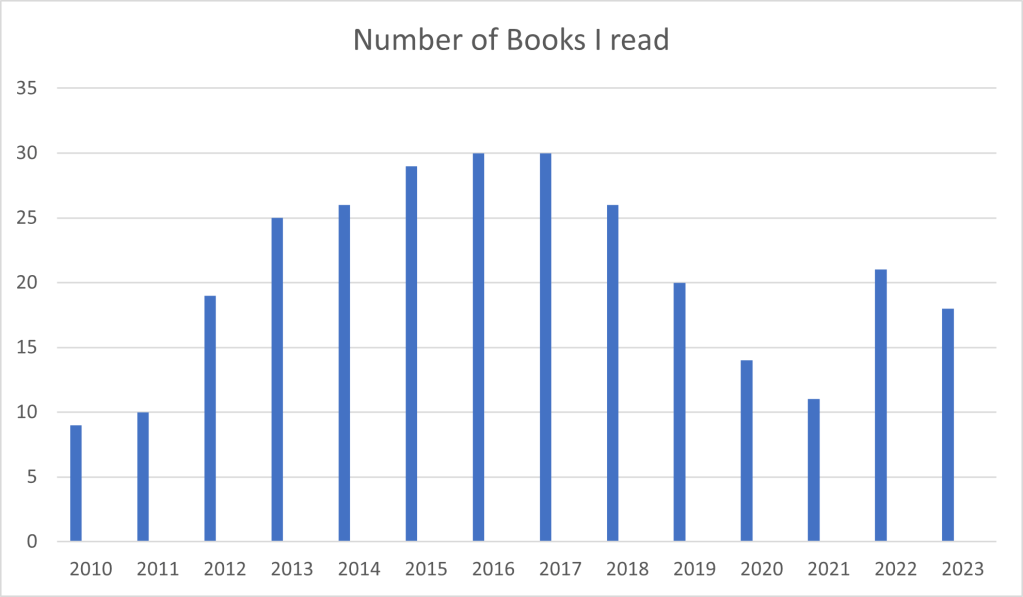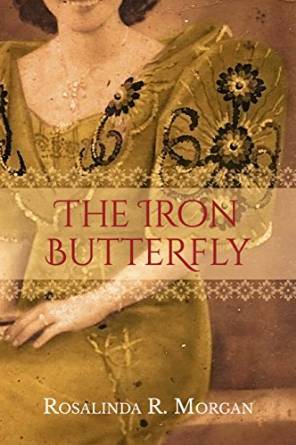
Dec. 24, 1941
As they were nearing Tarlac, they were hearing explosions close by. There were more explosions it seemed. Looking further out, they could see clouds of black smoke billowing up in the sky, then more explosions. Every so often, they would stop on their trek and waited till the explosion stopped. It just went on forever, it seemed. It could not possibly be too far because it sounded too loud. They were getting very nervous. They knew heavy fighting must be going on somewhere nearby. They could smell the gunpowder. They were hoping they would not encounter the enemy on the road. The road was very busy at certain sections but they had not seen any Japanese troops. They were mostly American soldiers and Filipino soldiers going the other way. At around 4 PM, they hastened their pace before it really got dark. They were determined to reach the provincial capital of Tarlac.
They were looking for the municipal building where they usually stayed for the night when they heard the roar of army trucks and a band of Japanese soldiers approaching in their direction. There was no time to run away or hide from them. They knew the Japanese soldiers saw them. If they ran, chances were the Japanese would fire their guns. Better to stay calm. Still, there was that fear that they could get shot. Some of the Japanese soldiers got off the trucks and with their bayonet-tipped rifles brandishing away waved at Benjamin and his group and told them to stop.
Benjamin took a quick look at Ramon and his brother nodded. They all stopped and stood frozen. The group thought that was the end of them. Still they tried to remain calm. They bowed to the Japanese soldiers who bowed back. One of the soldiers started talking in Japanese to his comrades and then turned to them. He looked at them up and down, one after another. The soldiers nodded their head. They talked to each other again in Japanese while Benjamin and his group waited. They could not make anything out of what they were saying but they were scared. They did not know what these soldiers were going to do.
“Dear Lord, please help us.” Benjamin was praying in silence.
Then one of the soldiers took a step and looked at them holding their packs.
“What’s in those packs?” one of the Japanese soldiers asked. He spoke little English.
“Clothes.” Ramon said automatically and bowed. Everyone bowed too. In his nervousness, he forgot about the corned beef that they exchanged with the American soldiers a few days ago. Within minutes after he said “Clothes”, he remembered the corned beef suddenly. He felt sweats running down his shirt. He tried to remain calm.
The soldiers looked at them up and down again and decided they looked harmless. The content of the packs was forgotten.
One of the Japanese soldiers said in a very stern voice, “Drop down those packs and go over there.” They looked where he was pointing. He was pointing to the farther side of the building with a clearing.
Slowly Ramon obediently dropped his pack and everyone followed his lead. They put down their belongings on the ground. “That was a close call,” he thought. At least for now, the storm has past.
Pointing to one side of the building, another soldier said, “No. Bring your things to that side of the building instead and hurry up.” They turned to where he was pointing then looked at each other and nervously picked up all their packs.
As they were taking their belongings to the other side of the building, Delfin whispered to Benjamin, “What are they going to do to us? They can’t seem to make up their mind.”
Benjamin answered, “I have no idea but I don’t like it, whatever it is.”
Ramon said to the six of them, “What can they do to us? We are civilians. We are not soldiers. Just do what they want us to do. Hopefully, they will not harm us.”
“Get moving. Get moving. We do not have all day.” Another one of the Japanese soldiers barked.
“Follow me,” the ringleader said. They did not know what to do. They looked at each other and without saying a word, started following the ringleader. They had no choice.
Benjamin started wondering what the soldiers were up to. Are these soldiers about to kill them? What would happen if they did? “God, please help us.” He prayed again.
They got to the other side of the building and came upon a battlefield which was littered with corpses, wrecked trucks, guns, cartridges, maps and backpacks all strewn everywhere. Some of the bodies were on top of each other. The sight was unbelievable. The stench of the dead bodies in the tropical heat was awful. They wiggled their nose and covered their mouth. Some of the dead bodies were covered with flies and then the flies tried to land on their faces. They shooed them away quickly.
There were hundreds of men, in various conditions of carnage, young men in their late teens and early twenties all bloodied and lifeless. There were huge abdominal gashes, some with buried or protruded shrapnel. Some have severed arms. Others lost their legs. Some had disfigured faces and mutilated bodies. Some had their skull opened probably with bayonets or samurai swords. There were bullet holes and dried blood all over their bodies. Some of the dead had their eyes open and thousands of flies buzzed and maggots started swarming around the bodies. It was a gruesome sight.
“Kura, Kura”, the Japanese leader said pointing to the scattered dead bodies. “Pick them up and bring them over there to the front of the building.”
They looked at each other and felt disgusted. They were incredulous. They could not believe what the Japanese soldier was saying. Their two cousins, Elias and Felipe, who had weak stomach threw up. One of the Japanese soldiers saw Elias and Felipe.
The Japanese soldier came over to them and with his bayonet stumping on the ground said, “Are you a man or a woman? Get up or you’ll be one of them.” pointing to the dead bodies. Elias and Felipe still nauseous tried to straighten up and moved slowly to the task at hand. Benjamin felt nauseated himself but he tried to control himself. Ramon held his stomach hard to keep from vomiting. Manuel, Francisco and Delfin looked at them trying hard not to vomit. They spat on the ground and tasted bile in their mouth.
One by one, with heavy heart and disgusted looks on their faces, they picked up the dead bodies of men, American, Filipinos and Japanese killed in the heavy fighting. They were so afraid to protest for fear of the consequences. They wanted to stay alive.
They started picking up the bodies and just dropped them in front of the building. Then one of the soldiers rushed back to the front of the building.
“Not that way. Like this.” He pulled some dead bodies and then dropped them in a neat pile. Then he changed his mind. “Bring them instead to the back of the building and pile them up in a low”.
Benjamin gave him a quizzical look.
“Like this.” The soldier said. He walked from one side to the other side.
“You mean in a row.” Benjamin bowed. The soldier bowed back.
The group tried hard not to laugh. Benjamin saw their mouth curved slowly in amusement. They were smiling. Benjamin caught them and gave them a dirty look. They quickly stopped smiling and pretended not to hear the conversation.
Then they dragged the dead bodies from the front of the building to the back of the building without saying a word. They lined the bodies from one end of the building to the other end. The stench of the dead bodies was so awful but they tried to ignore it. Their nose kept on twitching but they moved on. They finished the first row.
All the while, the Japanese soldiers were there watching them, leaning against a tree chatting, smoking and drinking. Someone had his cigarette hanging from his lower lip and looking over his shoulder while talking and watching them. Someone must have told a funny joke because you could hear their laughter. Then the leader of the soldiers slung his weapon on his shoulder and stood up straight and walked toward them.
Delfin saw him and flinched, whispered to Ramon, “What is he going to do now?”
“Just stay calm. Let me handle this.” Ramon said.
The group had just finished the first row. As the commander approached them, Ramon bowed to him and asked, “What do we do with the rest?”
“Put them on top of one another.”
“Like sandbags? Ramon asked.
“Yes. Go.”
Without uttering another word, they all went back to work. They just kept on piling the bodies without thinking. On and on, they flopped the dead bodies on top of the first row.
As Benjamin was helping pile all the dead bodies one on top of the other, he could not help thinking about the fate of these young men. How will their parents know that their sons are gone? Some of these soldiers are still young kids, a few years younger than him. The war is only just beginning. How many more men and women and possibly children will be lost in the following months? How many of these young men had their dreams shattered and lost in this battle? How about their sweethearts that they left behind going to accept the fact that they will never get married and have that family and house that they dreamt of? How about those young wives who they left behind? Some probably even have children that were born after their husband went to war. The kids will never know their father. Suddenly he thought of Adelaide, then said a silent prayer to spare him and his brothers. He wanted to see Adelaide. He had to make it home and see her. He had to behave himself so the Japanese won’t harm them. He wanted so much to stay alive.
They worked furiously for almost five hours without a break. At first it was hard to concentrate and the task was so gruesome, it was nauseating. After a while, they became an automaton and they just piled the bodies on top without even thinking. As the night started to fall, they were beginning to get dizzy from hunger. They were so weary and exhausted when the Japanese soldiers told them to stop for the night.
Then out of the blue, which they could not figure out why, the Japanese fed them. They ate a meal of rice and some meat. It was not bad at all considering that they were at war with these people. Benjamin was thinking maybe this was their last supper. God only knew what would happen next. Then like another miracle in the night, the Japanese soldiers left. They were left alone in the municipal building. They looked at each other and could not figure out why they just left them there alone. But they were too tired to worry about it. The soldiers never thought of them running away since it was too dark at night already and they were exhausted from all the work. The soldiers were right but not completely right. It was late so they took out their sleeping mats and due to exhaustion, they all fell asleep in no time except Benjamin.
Benjamin lay awake, decided to go outside and sat on the front stoop of the municipal building. He listened to the faint rumbling of gunfire in the distance and the buzzing of the insects nearby that seemed to converge around him. Now and then, he slapped the mosquitoes haphazardly making a sharp crack at the buzzing sound. Benjamin was so tired that night but sleep was elusive. The sight of those young men kept on coming back. There were more in the field. They did not finish piling them up. Maybe that’s why the Japanese left them alone. He was sure they were thinking of them finishing them up the next day and God knows what would happen next.
The whole thing was really bothering him so much and he kept on thinking about the dead bodies. They were not just white American. People of every color, black, white, brown with blue, brown, green and black eyes. These young kids were here with a mission, fighting for a noble cause to defend the Philippines from the invaders. Benjamin could not get their faces out of his mind.
He sat there for a long time thinking he could get some fresh air. However, the air outside did not smell fresh. On ordinary evenings, you could smell the scent of exotic tropical plants and the evening would be loaded with fireflies dancing in the air but not tonight. It was acrid and smelt of death.
He looked up at the sky. The night sky was clear with the moon shining brightly and there was a sprinkling of thousands of stars. The stars were twinkling so bright and hanging so low. It looked like you could almost touch them. He just realized that tonight was Christmas Eve. It was hard to believe and yet here he was in the midst of a rotten place on Christmas Eve. It did not make sense whatsoever. He then realized maybe the Japanese had Christmas spirit after all and that was the reason why they did not harm them. They also went out to town for merrymaking perhaps. The Baby Jesus must be watching over them.
Then he thought of something else. If it was a different circumstance, they could have been home by this time. They should be about getting ready for the coming of the Saviour, Jesus Christ. It should be nearing the time when they all went to church for the midnight mass and then home and enjoying Noche Buena. “Oh, how I wish we were home now,” he sighed.
Excerpts from the book “BAHALA NA (Come What May)” – my father’s memoir. Benjamin in the story was my father.
Until Next time. Merry Christmas and a Happy New Year!
Rosalinda R Morgan
Author & Garden Writer








